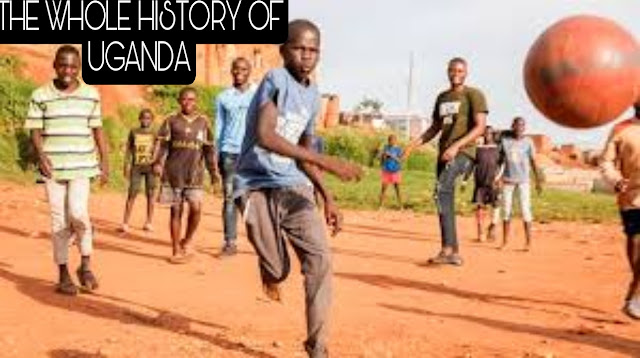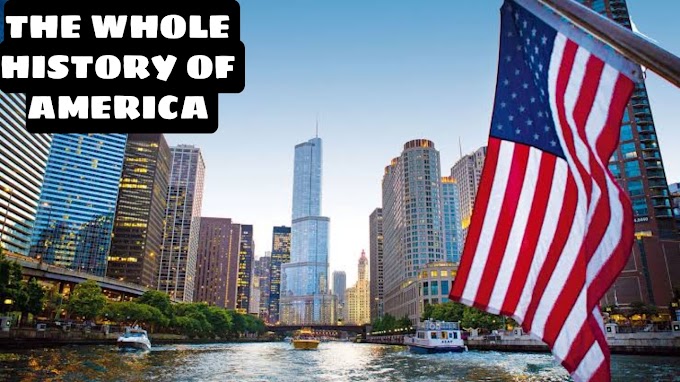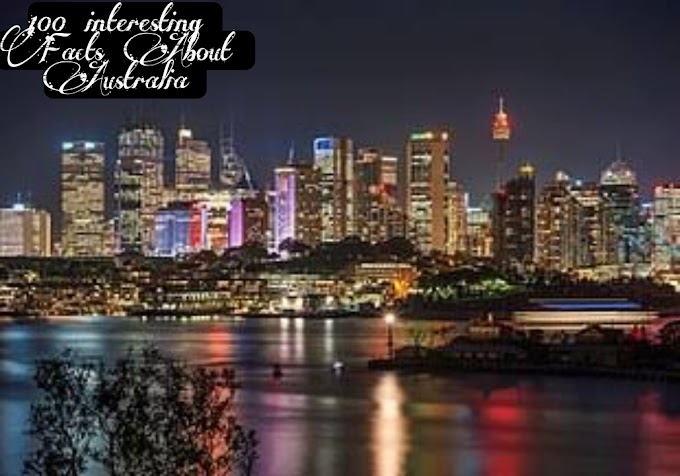THE WHOLE HISTORY OF Uganda
Hello Friends:
Welcome to countries facts so today in this Article I will show you the whole history of uganda comprises the history of the people who inhabited the territory of present-day uganda before the establishment of the republic of uganda and the history of that country once it was established evidence from the paleolithic era shows humans have inhabited uganda for at least 50 000 years the forests of uganda were gradually cleared for agriculture by people who probably spoke bantu languages in 1894 uganda became a protectorate of the british empire and in 1962 the united kingdom granted independence to uganda making sir edward mutasa while lucha be the first president of uganda and cabaca of buganda idi amin deposed milton aboute in 1971 to become ruler of uganda a position he would occupy until he was ousted in 1979 as a result of the uganda tanzania war after a series of other leaders yori museveni came to power in 1986 and has led uganda since that time pre-colonial times paleolithic evidence of human activity in uganda goes back to at least fifty thousand years and perhaps as far as one hundred thousand years as shown by the a coulee and stone tools recovered from the former environs of lake victoria which were exposed along the kagera river valley chiefly around sinisi the cultivators who gradually cleared the forest were probably bantu speaking people whose slow but inexorable expansion gradually took over most of sub-saharan africa they also raised goats and chickens and they probably kept some cattle by 400 bce their knowledge of agriculture and use of iron forging technology permitted them to clear the land and feed ever larger numbers of settlers they displaced small bands of indigenous hunter-gatherers who relocated to the less accessible mountains meanwhile by the 1st century ce and possibly as early as the 4th century bce in western tanzania certain related bantu-speaking metallurgists were perfecting iron smelting to produce medium-grade carbon steel and preheated forced draft furnaces although most of these developments were taking place southwest of modern ugandan boundaries iron was mined and smelted in many parts of the country not long afterward protectorate in the 1890s 32 000 laborers from british india were recruited to east africa under indentured labor contracts to construct the uganda railway most of the surviving indians returned home but 6724 decided to remain in east africa after the line's completion subsequently some became traders and took control of cotton ginning and sartorial retail from 1900 to 1920 a sleeping sickness epidemic in the southern part of uganda along the north shores of lake victoria killed more than 250 000 people early independent uganda britain granted independence to uganda in 1962 although elections leading to internal self-governance were held on march 1 1961. benedicto kiwanuka of the democratic party became the first chief minister milton aboute was elected prime minister in april of 1962 and uganda became a republic in october 1962 maintaining its commonwealth membership in succeeding years supporters of a centralized state vied with those in favor of a loose federation and a strong role for tribally-based local kingdoms political maneuvering climaxed in february 1966 when milton about a the prime minister suspended the constitution and assumed all government powers removing the positions of president and vice president in september 1967 a new constitution proclaimed uganda republic gave the president even greater powers and abolished the traditional kingdoms uganda under idi amin after a military coup on january 25 1971 about a was deposed from power and the dictator idi amin seized control of the country amin ruled uganda with the military for the next eight years and carried out mass killings within the country to maintain his rule in 1972 under the so-called africanization policy about 40 000 ethnic indians with british passports were forced to leave uganda approximately 7 000 were invited to settle in canada however only a limited number accepted the offer and the 2006 census reported 3 300 people of ugandan origin in canada the loss of the entrepreneurial indian minority left the country's economy in ruins amin's eight-year rule produced economic decline social disintegration and massive human rights violations the acholi and longi ethnic groups in northern uganda were particular objects of amin's political persecution because they had supported a bote and made up a large part of the army in 1978 the international commission of jurists estimated that more than 100 000 ugandans had been murdered during a means reign of terror some authorities placed the figure as high as 300 000 a statistic cited at the end of the 2006 movie the last king of scotland which chronicled part of amin's dictatorship amin's atrocities were graphically recounted in the 1977 book a state of blood written by one of his former ministers after he fled the country henry kamba a means rule ended after the uganda tanzania war in which tanzanian forces aided by ugandan exiles invaded uganda the conflict started with a border altercation involving ugandan exiles who had a camp close to the ugandan border near muchukula this resulted in an attack by the ugandan army into tanzania in october 1978 the tanzanian armed forces repulsed this incursion and backed by ugandan exiles invaded uganda amin's troops were assisted by libyan soldiers on april 11 1979 the capital kampala was captured and amin fled with his remaining forces to libya uganda since 1979. after amin's removal the uganda national liberation front formed an interim government with yusuf lula as president and jeremiah lucas opira is the secretary general of the unlf this government adopted a ministerial system of administration and created a quasi-parliamentary organ known as the national consultative commission the ncc and the lula cabinet reflected widely differing political views in june 1979 following a dispute over the extent of presidential powers the ncc replaced lula with godfrey benissa in a continuing dispute over the powers of the interim presidency benissa was removed in may 1980. thereafter uganda was ruled by a military commission chaired by paolo muanga the december 1980 elections returned the upc to power under milton aboute's leadership with mawanka serving as vice president under a boater the security forces had one of the world's worst human rights records in their efforts to stamp out an insurgency led by yori museveni they laid waste to a substantial section of the country especially in the luero area and north of kampala the insurgency the so-called bush war was conducted by the national resistance army under the leadership of yori museveni and other rebel groups including the federal democratic movement led by andrew caira and another led by john quanga during the conflict the army carried out mass killings of non-combatants a beauty was overthrown on july 27 1985 when an army brigade composed mostly of ethnic acholi troops and commanded by lieutenant general basilio alara opelo took kampala and proclaimed the military government aboate fled to exile in zambia the new regime headed by former defense force commander general tito ocalo opened negotiations with museveni's insurgent forces and pledged to improve respect for human rights and tribal rivalry and conduct free and fair elections in the meantime massive human rights violations continued as the ocalo government carried out a brutal counterinsurgency in an attempt to destroy the nra support negotiations between the ochello government and the nra were conducted in nairobi in the fall of 1985 with kenyan president daniel arap ma seeking a ceasefire in a coalition government in uganda although agreeing in late 1985 to a ceasefire the nra continued fighting and seized kampala and the country in late january 1986 forcing ocalo's forces to flee north into sudan museveni's forces organized a government with museveni as president since assuming power the government dominated by the political grouping created by museveni and his followers the national resistance movement has largely put an end to the human rights abuses of earlier governments initiated substantial political liberalization and general press freedom and instituted broad economic reforms after consultation with the international monetary fund world bank and donor governments in northern areas such as a holy land there has been armed resistance against the government since 1986. acholi based rebel groups included the uganda people's democratic army and the holy spirit movement the only remaining rebel group is the lord's resistance army headed by joseph coney whose insurgency carried out widespread abduction of children to forcibly recruit them or use them as sex slaves in 1996 uganda was a key supporter of the overthrow of sierian president mobile 2 cece secco in the first congo war in favor of rebel leader laurent desiree cabilla 21st century between 1998 and 2003 the ugandan army was involved in the second congo war in the democratic republic of the congo uganda continues to support rebel groups there such as the movement for the liberation of congo and some factions of the rally for congolese democracy august 2005 parliament voted to change the constitution to lift presidential term limits allowing museveni to run for a third term if he wished to do so in a referendum in july 2005 92.5 percent of voters supported the restoration of multi-party politics thereby scrapping the no party or movement system kisa biseki museveni's political rival returned from exile in october 2005 and was a presidential candidate during the 2006 elections in the same month about a died in south africa museveni won the february 2006 presidential election in 2009 the anti-homosexuality bill was proposed and under consideration it was proposed on october 13 2009 by member of parliament david bahati and had it been enacted would have broadened the criminalization of homosexuality in uganda introduced the death penalty for people who have previous convictions are hiv-positive or engage in sexual acts with those under 18 introduced extradition for those engaging in same-sex sexual relations outside uganda and penalized individuals companies media organizations or non-governmental organizations who supported lgbt rights on july 11 2010 al-shabab bombers killed 74 people in kampala on september 13 2014 the ugandan security and intelligence services with the assistance of the united states identified and foiled a major terrorist attack in kampala they recovered suicide vests improvised explosive devices and small arms and they arrested 19 people who were suspected to have had links to al-shabaab this attack could have been as substantial as the attack in nairobi during the previous year at westgate mall instead it was a failure for al-shabab the 2016 ugandan general election was held in uganda on february 18 2016 to elect the president and parliament polling day was declared a national holiday ahead of the election museveni described the formation of an east african federation uniting uganda tanzania kenya rwanda burundi and south sudan as the number one target that we should aim at in september 2018 a committee was formed to begin the process of drafting a regional constitution and a draft constitution for a confederation is set to be written by 2021 with implementation of the confederacy by 2023 the 2021 ugandan general election re-elected president museveni to a sixth term but international observers complained of government violence and disinformation suppression of independent media and opposition campaigning the arrest of opposition leaders the shutdown of the internet and harassment of observers according to official results museveni won the elections with 58 of the vote while pop star turned politician bobby wein had 35 the opposition challenged the result because of allegations of widespread fraud and irregularities I hope you guys this Article will be informative for you we will see you soon in the next one ByeBye.

















